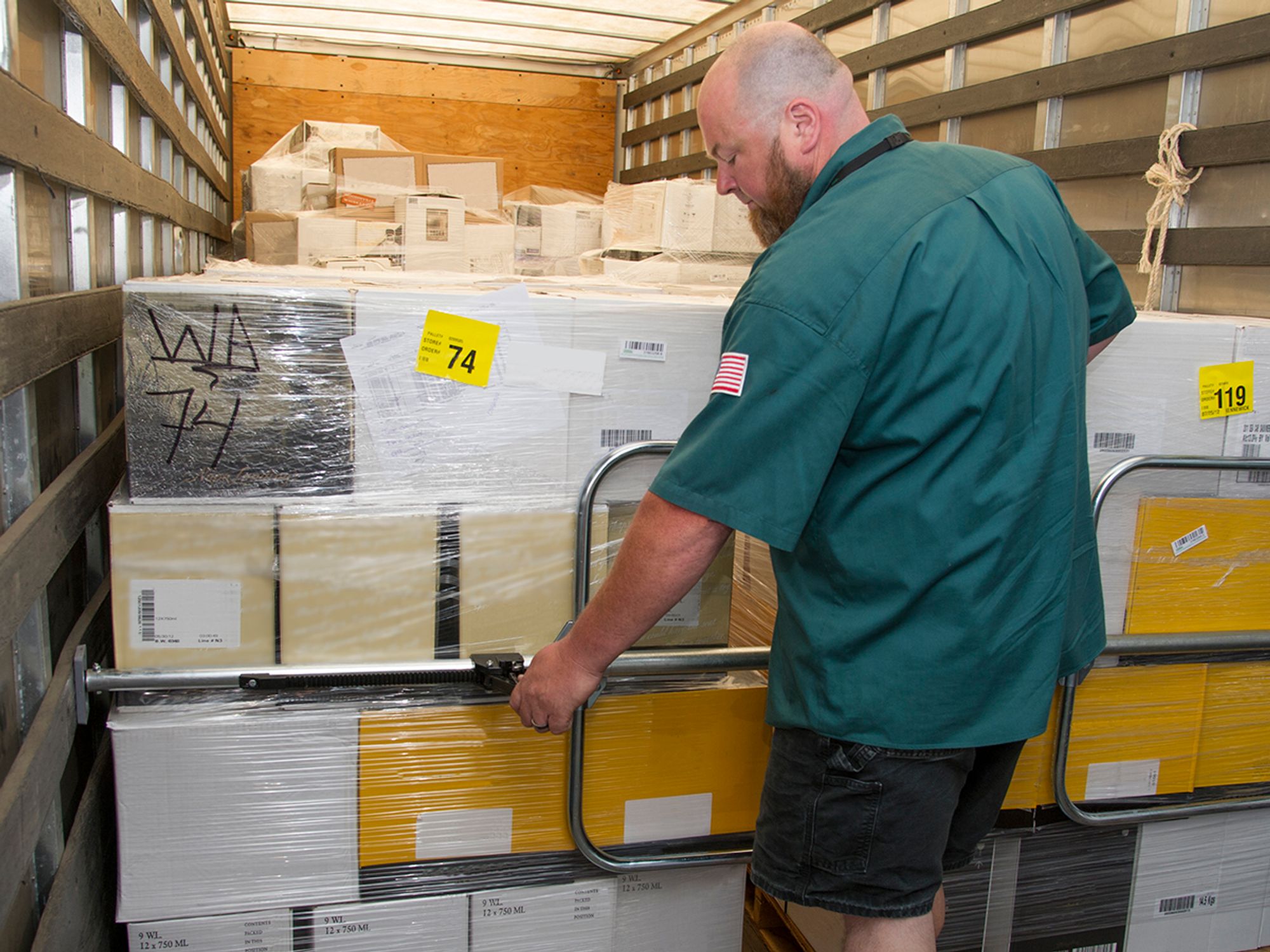Loading/unloading services

- It is illegal to force or attempt to force a driver to load or unload, or to force the driver to employ someone else to load or unload.
- The written lease agreement or contract must contain a clear statement of who is responsible for loading and unloading.
The service of loading and unloading cargo by laborers is known in the motor carrier industry as lumping. Lumping was addressed in the Motor Carrier Act of 1980 and the Interstate Commerce Commission Termination Act of 1995.
Under those laws, it is illegal to force or attempt to force a driver to load or unload, or to force the driver to employ someone else to load or unload. A driver may hire someone to load or unload but cannot be forced to do so. If the driver is required by the shipper or receiver to hire someone to load or unload, the shipper or receiver must compensate the driver.
The intention of the provision is to give the driver the option of loading or unloading themselves or choosing to pay for assistance. Nothing in the law prohibits a driver from loading or unloading the vehicle himself or herself.
Written agreements
Exactly who is responsible for loading and unloading, and payment for that task, should be negotiated and agreed upon by the shipper and carrier in advance and should be in writing. This requirement can be met in several ways:
- The information may be incorporated into the “tariff” or “rate sheet” published by the carrier, and available to the shipper upon request.
- The responsibility for loading/unloading may be noted on the bill of lading issued by the carrier.
- A carrier operating under contract as a contract carrier may include the loading/unloading information within the contract with the shipper.
Leases and contracts
The law is clear regarding leased vehicles, and contracts entered into by owner-operators. The written lease agreement or contract must contain a clear statement of who is responsible for loading and unloading: the shipper, receiver, or the driver of the vehicle. 49 CFR 376.12(e)
Penalties
The Federal Motor Carrier Safety Administration (FMCSA) has severe penalties for violation of these loading/unloading requirements, found in Part 386 Appendix B.
Applicable laws
Under the Interstate Commerce Commission Termination Act of 1995, section 14102(b) outlines who is responsible for loading and/or unloading a vehicle:
(b) Responsible Party for Loading and Unloading: The Secretary shall require, by regulation, that any arrangement, between a motor carrier of property providing transportation subject to jurisdiction under Subchapter I of Chapter 135 and any other person, under which such other person is to provide any portion of such transportation by a motor vehicle not owned by the carrier shall specify, in writing, who is responsible for loading and unloading the property onto and from the motor vehicle.
Section 14103 further outlines details on loading and unloading motor vehicles:
(a) Shipper Responsible for Assisting: Whenever a shipper or receiver of property requires that any person who owns or operates a motor vehicle transporting property in interstate commerce (whether or not such transportation is subject to jurisdiction under Subchapter I of Chapter 135) be assisted in loading or unloading such vehicle, the shipper or receiver shall be responsible for providing such assistance or shall compensate the owner or operator for all costs associated with securing and compensating the person or persons providing such assistance.
(b) Coercion Prohibited: It shall be unlawful to coerce or attempt to coerce any person providing transportation of property by motor vehicle for compensation in interstate commerce (whether or not such transportation is subject to jurisdiction under subchapter I of chapter 135) to load or unload any part of such property onto or from such vehicle or to employ or pay one or more persons to load or unload any part of such property onto or from such vehicle; except that this subsection shall not be construed as making unlawful any activity which is not unlawful under the National Labor relations Act or the Act of March 23, 1932 (47 Stat. 70; 29 USC 101 et seq.) commonly known as the Norris-LaGuardia Act.
